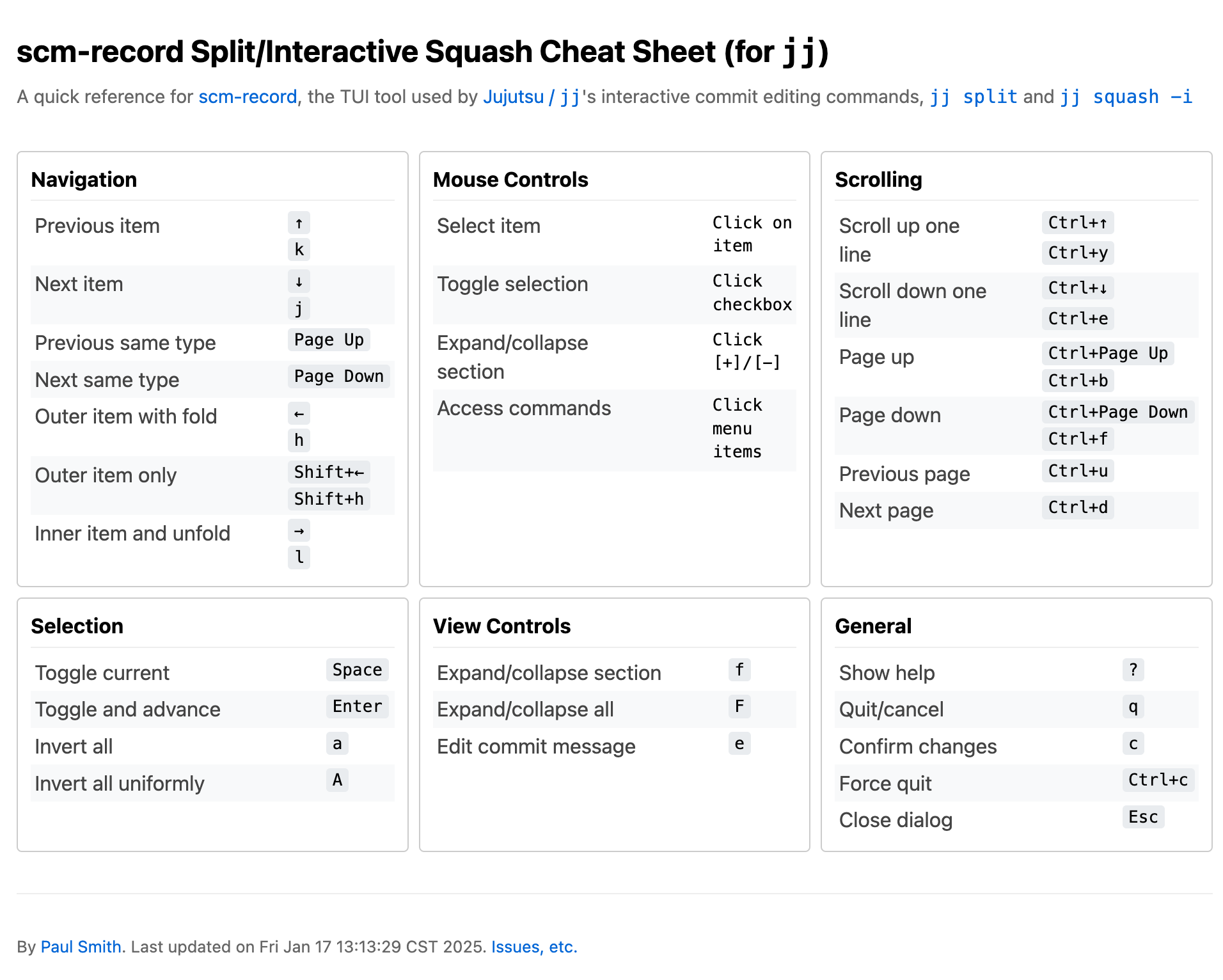Cheatsheet for jj's builtin diff editor
I grepped the scm-record repo for command names I was familiar with, and,
finding the ui.rs source that maps key strokes and mouse clicks
to commands, I extracted them into a cheatsheet-style layout suitable for
quick reference while learning and using jj's built-in diff editor.
If you're like me, then lately you've been using the new VCS kid on the block,
jj. And if you're really like me, then you have encountered the built-in diff
editor/merge tool when doing a revision split (jj split), when doing the
so-called squash workflow (interactively via jj squash -i), or when resolving
a conflict (jj resolve). The tool is bundled with jj. It comes from a
project named scm-record. The binary executable you're invoking is
named scm-diff-editor, and you might see reference to that name in jj docs,
but you don't need to know that if you just leave jj configured by default to
use it as the built-in diff/merge tool.
And if you're really, really like me, then when you were presented with the
built-in diff/merge tool in your terminal upon executing one of those commands,
you were frustrated and felt dumb as you mashed keys and tried to understand
what you were supposed to do and how. It's a spartan interface, and as far as I
can tell, and I certainly tried to tell, because I queried the usual search
indices and other knowledge resources, and combed the jj docs, and noted the
apparent complete lack of scm-record docs, there is not much yet out there in
the public to help you through editing a diff with it and ultimately amending
your jj commit. I don't fault those involved, it's a young and maturing
project, and the editor itself is a separate effort from jj, but seeing as
how it is a key step in the recommended way of using jj, I needed
more help. (Incidentally, Steve's doc linked there was the only documentation
I was aware of when I trying to figure this out, so I appreciate him for
providing a practical example).
